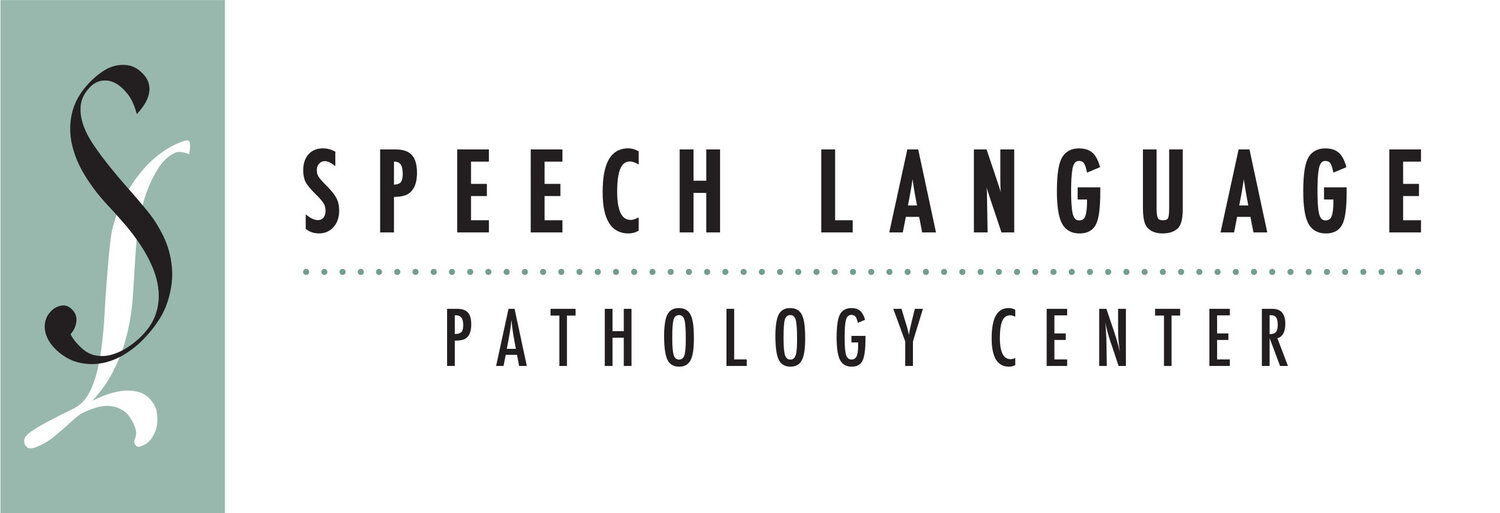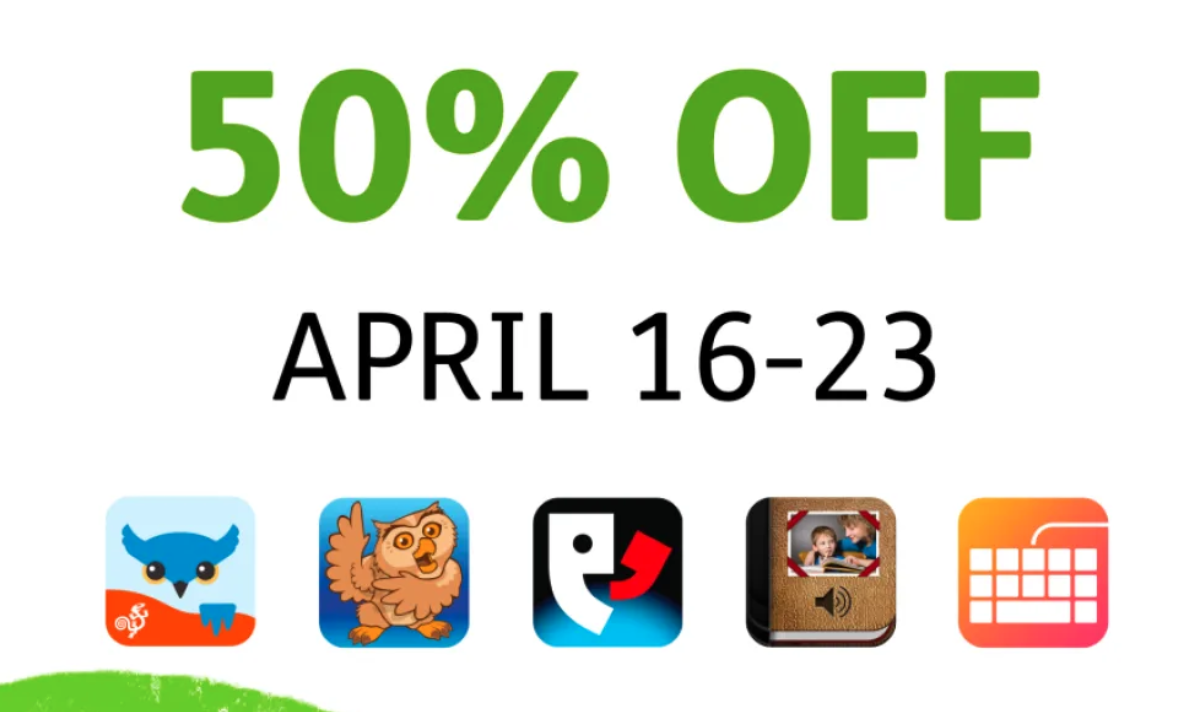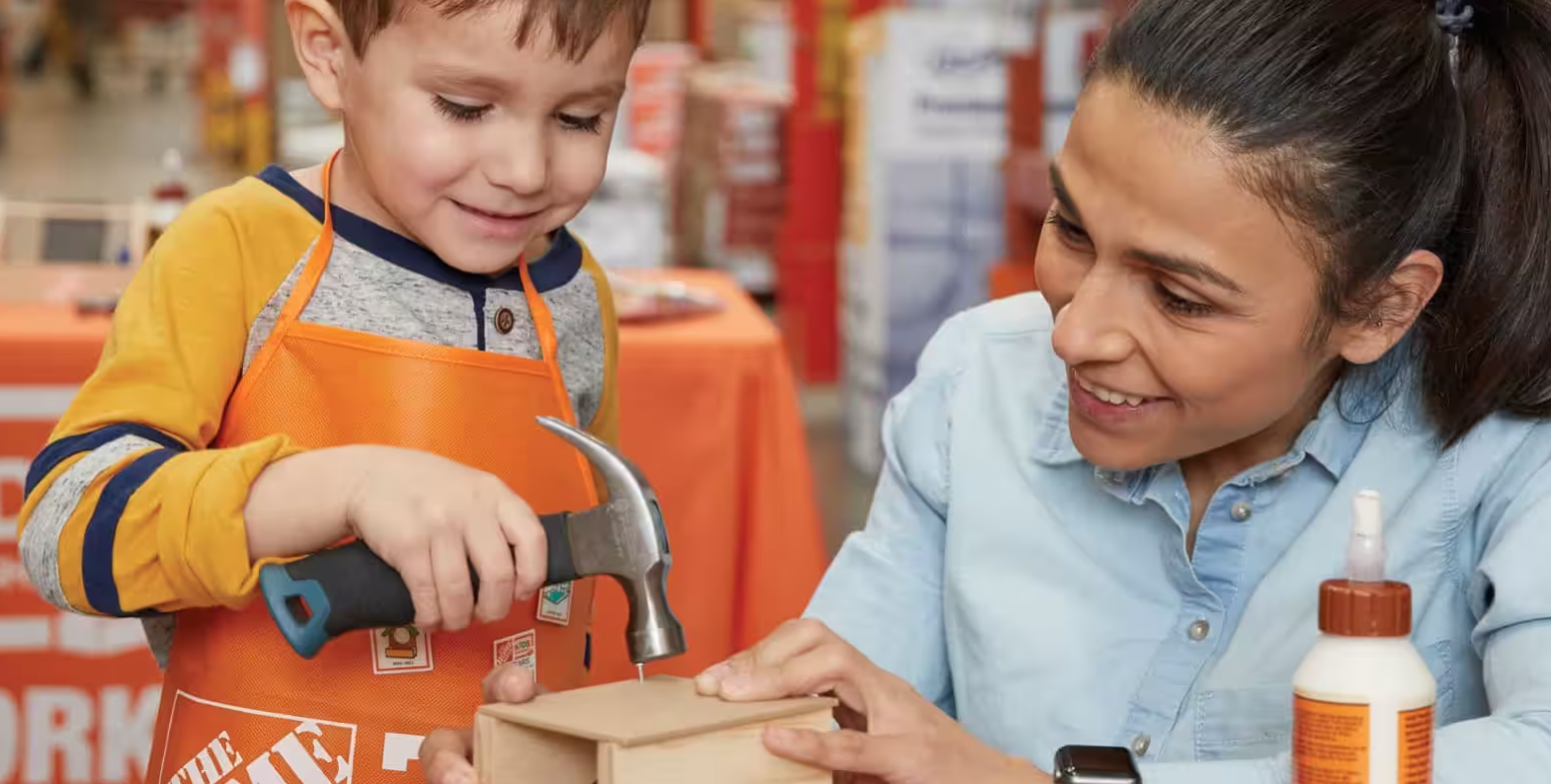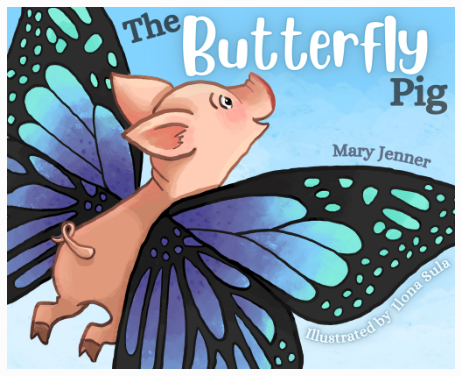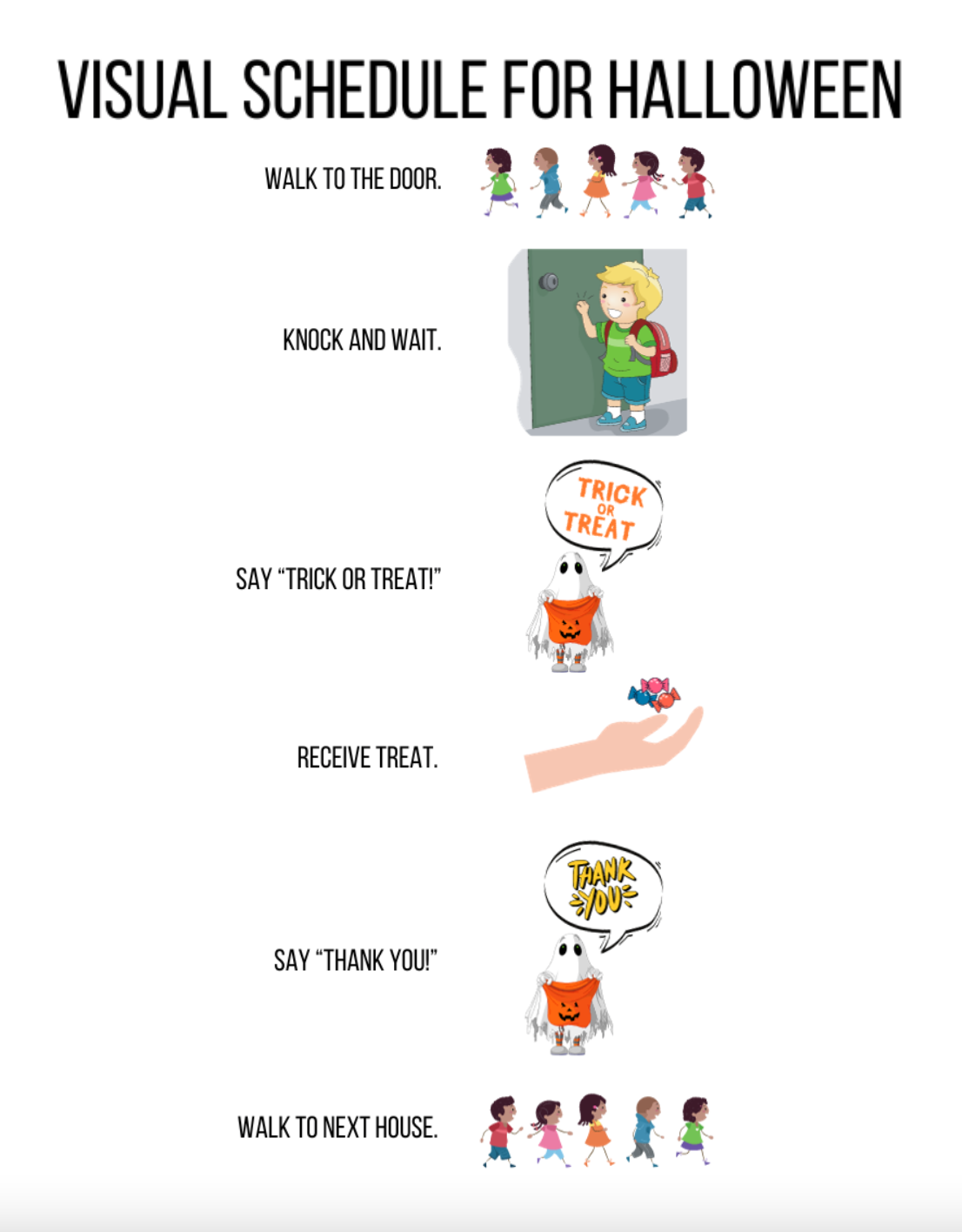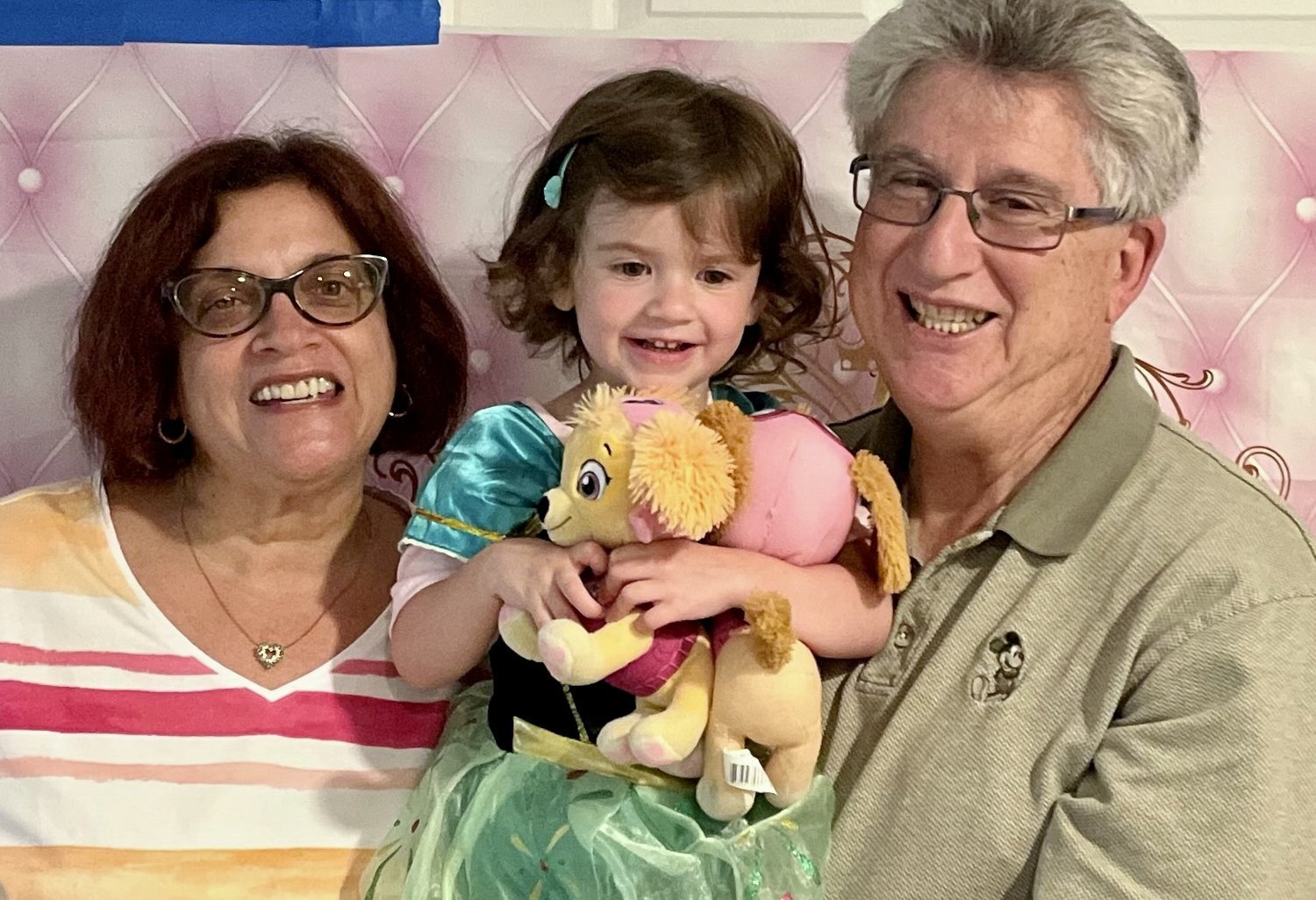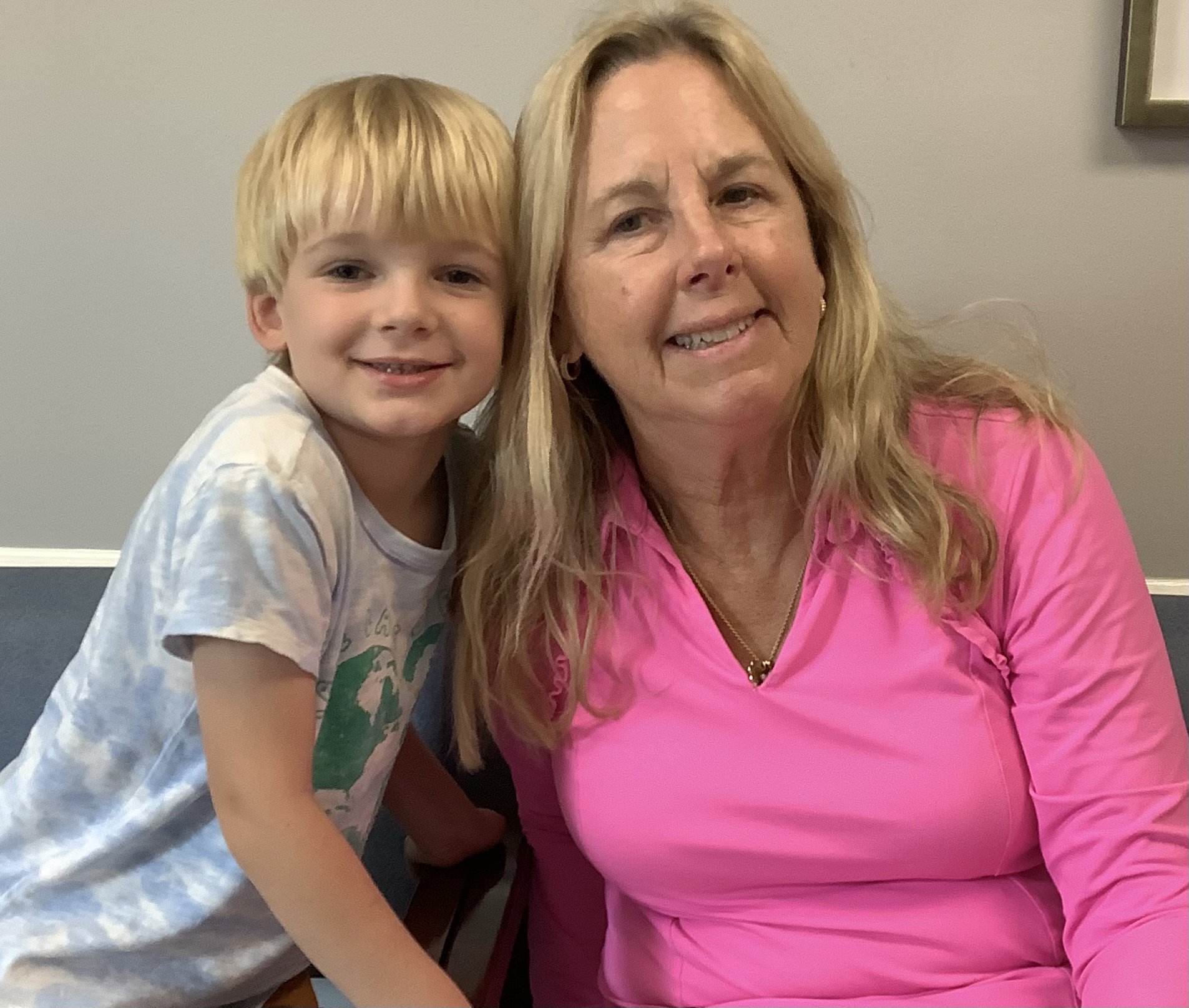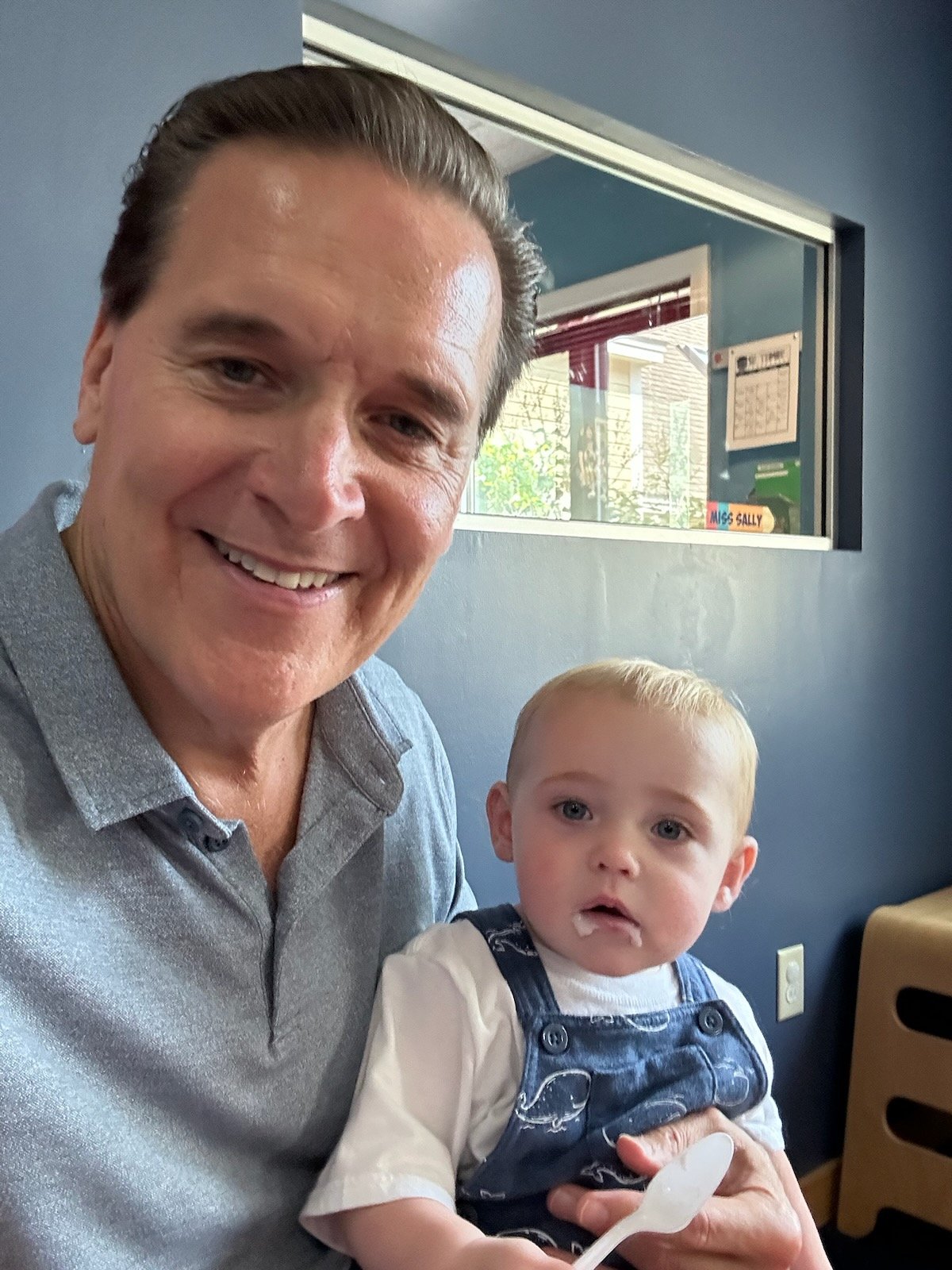Summer is finally here and nothing screams summer more than ICE CREAM! Friends and family of the SLP Center are invited to join us for an ice cream social at our office. Cups and cones will be dolled out by Nona’s Ice Cream Truck. We hope you can join us on Thursday, July 25 from 12:30-1:15 PM for a cool treat!
Our Favorite Speech Therapy Games
At the SLP Center we incorporate games into nearly all of our sessions! Why? Because they are a functional and fun way to address a variety of communication challenges. From turn-taking to executive functioning to articulation practice, games are an excellent way to get your child engaged and motivated in improving their speech and language abilities. Check out some of our favorite games below!
Sneaky, Snacky Squirrel & Shelby’s Snack Shack Game: These games from Educational Insights are a huge hit with ages 3+! Work on turn-taking, counting, colors and articulation! These are particularly great for working on generalization of /s/ and /s/-blends (e.g. snack, sneaky, steal, squirrel)!
Zingo: We love Zingo for simple vocabulary, turn-taking and visual referencing! Try talking about action words and categories for increased language modeling. For example, “I got something you can eat!” or “I still need something that flies.”
Race to the Treasure: This cooperative game is amazing for working on collaboration (i.e. shared decision making), turn-taking and early problem solving!
Guess Who: This classic game is one that everyone in the family can enjoy! We love it for working on describing, problem solving, negation (e.g. “They don’t have brown hair.”), and articulation. This game is awesome for working on generalization of the sounds your child has been working on in therapy. It can be helpful to establish your goal ahead of time. “Hey, while we play Guess Who, I’m going to be listening for you to use your best /r/ sounds. If I hear a tricky one, we’ll try to say it again together!” Check out the other versions of Guess Who to mix it up and lean into your child’s interests (e.g. pets, Marvel, Paw Patrol).
Give these games a try (keeping your communication goals in mind) and let us know how it goes! Ask your speech therapist for specific recommendations for games that may help meet your child’s goals.
Summer Camp Guide for Greater Boston 2024
With summer quickly approaching, now is a great time to start exploring summer camp options for the kids! “Mommy Poppins” compiled an issue for the best summer camps around, including sleep-away options, STEM or theater day camps, and more. There are camps and programs for any interest area!
Learn more using the link below!
Neurodiversity – Accepting Others for Who They Are & Celebrating Our Differences
To wrap up the last week of April, Autism Awareness and Acceptance Month, we wanted to help you celebrate your neurodiverse friends, family, students, and coworkers by learning more about neurodiversity.
What does it mean to be neurodiverse?
In its simplest form, neurodivergent thinking is a difference in brain functioning and development from “typical” thinking, often related to diagnoses such as autism, ADHD, and more. This results in the brain processing and perceiving information in a different manner from the neurotypical. It is not a weakness or inherently bad, it is just a different way of thinking.
What does it mean to be neurodiversity affirming?
To be neurodiversity affirming, there is a shift from viewing neurodivergence as a deficit to seeing it as a difference. This shift focuses on an individual’s strengths rather than seeing their way of thinking and perception of the world as a deficit/weakness. It is not something to be “fixed.” Neurodiversity affirming treatment considers the following principles: presuming competence, supporting/recognizing all communication methods, supporting/recognizing sensory needs, emphasizing connection, embracing special interests, and using a strengths-based approach.
As part of the neurodiversity affirming movement, there is also shift in the language we use to describe needs and supports to be more strengths-based affirming language. Many of us are guilty of using antiquated language that is not supportive of neurodivergent thinkers. But now that you know better you can do better. Inform those around you that are still using old terms and descriptors of the preferred and accepted language.
Examples of more neurodiversity affirming language include:
Old Language: Person with autism — Red flags for autism — High-functioning/low-functioning — Obsessions — Attention seeking — Deficits
New Language: Autistic person — Autistic traits/characteristics — Low support needs/high support needs — Passionate interests — Connection seeking — Challenges/difficulties, opportunities for learning
Neurodivergence and neurodiversity affirming care and principles are far more detailed than what’s shared here. Take this as a jumping off point and visit some of these pages to learn more about the current research and movement to stay up-to-date and best support and celebrate your neurodivergent loved ones!
Also, feel free to check out these worthwhile Instagram accounts to learn more: @sensory.slp, @speechdude, @cari.ebert.seminars, @connectionsspeechpathology, @play_spark
AAC Apps on Sale for April 2024!
AssistiveWare and PRC-Saltillo are offering 50% off some of their most popular apps in celebration of Autism Awareness and Acceptance Month! These companies are committed to expanding access to AAC options for individuals with autism and other communication difficulties. Check out the sale links below. Inquire with your speech therapist with any questions regarding the sales!
AssitiveWare’s Sale runs April 16-23, 2024. The following apps are included in the sale: Proloquo, Proloquo2Go, Proloquo4Text, Pictello, and Keeble. Find the website and information here!
PRC-Saltillo’s Sale runs April 24-May 7, 2024. The following apps are included in the sale: TouchChat, LAMP Words for Life, and Dialogue AAC. Find the website and information here!
World Down Syndrome Day 2024: End the Stereotypes!
Stereotypes are harmful! For people with Down syndrome and intellectual disabilities, stereotypes can stop us from being treated like other people. We get treated like children, we are underestimated and we are excluded. Sometimes we are treated very badly or even abused.
What is a ‘stereotype’? A stereotype is a set idea that people have about what someone or something is like. Stereotypes can be positive, negative or neutral, but they are often inaccurate, or simply wrong! Stereotypes are often based on limited information or personal experience. They can be reinforced by the way something is represented in the media or by cultural messages. Once formed, a stereotype can be difficult to change. Visit the WDSD website (link below) to read testimonials from people with Down Syndrome.
The truth! People are all different. Each person with Down syndrome is different. Each person with an intellectual disability is different. We don’t all act the same way or like the same things. We each have our individual identity, interests, likes and dislikes, gifts and talents, just like everyone else. Having Down syndrome or an intellectual disability is just one part of who we are! We are people. Treat us like people.
The above text was shared from the World Down Syndrome Day website. Visit here to learn more ways to take action and to read testimonials from individuals with Down Syndrome.
Believe it or not, socks get people talking! One of the easiest ways to take action is to choose some socks that are going to get noticed on March 21st! They might be mismatched socks or your craziest and most colourful socks, whatever takes your fancy! The idea is to start a conversation, so when people ask you about your socks you can tell them, “I’m wearing them to raise awareness of Down syndrome”. And then you can tell them everything you want them to know about Down syndrome! Together we will create a single global voice advocating for the rights, inclusion and well being of people with Down syndrome.
#WorldDownSyndromeDay #EndTheStereotypes #LotsOfSocks
Spring Cleaning – Don’t Forget Your Library!
With spring right around the corner, many of us are starting our spring cleaning. What many of us don’t think about is “cleaning” or auditing our own personal libraries. This spring, we encourage you to go through your personal library, look at your children’s books and ask yourself what kinds of trends you see or identities they represent. We want to foster a generation of readers that are accepting of all – this can start at home by exposing our children to different family dynamics, cultures, and identities in stories. Some of our books have been passed down for generations and may portray certain stereotypes that are offensive or negative. If you find that some of your books fall under this umbrella and it has personal meaning because of who gifted it to you, or read it to you as a child, you don’t necessarily have to oust it from your library. However, it might be worth having more candid conversations with your child about the negative stereotypes portrayed and why they are hurtful. Use it as an opportunity to help your child develop empathy and understanding/acceptance for people and cultures that are different from their experiences.
While you’re auditing your library, take note of the main characters and “heroes” in your books. Are the majority animals or do the main characters all look the same? If you answered “yes” to either of those questions, consider diversifying your library. Make sure you have books with characters and “heroes” that look like your child and your family, but also consider including characters that represent your children’s friends, teachers, neighbors, and people/cultures that your children may not be exposed to. By reading stories that include different races, physical differences, ability levels, etc. you’re setting your children up to be accepting and empathetic to all people. Believe it or not, children as young as 3 start to recognize differences in race and the positive/negative associations they hear about their own and other races/cultures. In the wise words of Rudine Sims Bishop, “Books are sometimes windows, offering views of worlds that may be real or imagined, familiar or strange. These windows are also sliding glass doors, and readers have only to walk through in imagination to become part of whatever world has been created or recreated by the author. When lighting conditions are just right, however, a window can also be a mirror. Literature transforms human experience and reflects it back to us, and in that reflection we can see our own lives and experiences as part of the larger human experience. Reading, then, becomes a means of self affirmation, and readers often seek their mirrors in books.”
If you want to expand your library, check out this list of books that promote kindness and empathy.
Bishop, R. S. (1990). Mirrors, windows, and sliding glass doors. Perspectives: Choosing and Using Books for the Classroom,6(3).
Home Depot Hosts Monthly DIY Workshops for Kids!
The winter months can be long when we are stuck inside with the kids! They want things to do. We want to give them enriching activities to foster learning and growth. Enter: Home Depot!
On the first Saturday of every month from 9am-12pm, your local Home Depot hosts workshops for kids. These workshops are FREE and include all the needed materials and tools for a small, kid-friendly DIY project. Pre-registration is encouraged and workshop space may be limited, so be sure to arrive early and ready! The next few projects are: February - Valentine basket, March - Butterfly house, April - Lattice Planter.
DIY projects are an excellent way to work on generalizing some of your child’s therapy goals, as well. These workshops will tap into your child’s ability to follow directions, learn new vocabulary, understand concepts like prepositions or location words, recall steps and materials, and take turns. When they get home, have them talk about the experience with other family members or friends!
If you can’t make it into the store, no problem! Check out Home Depot’s website here for a collection of at-home DIY projects and crafts with tutorials, videos and guides. You kids will feel so accomplished after completing their project! Happy crafting!
Book Alert for Parents: Executive Function Skills
Smart but Scattered: The Revolutionary "Executive Skills" Approach to Helping Kids Reach Their Potential
“There’s nothing more frustrating than watching your bright, talented son or daughter struggle with everyday tasks like finishing homework, putting away toys, or following instructions at school. Your “smart but scattered” child might also have trouble coping with disappointment or managing anger. Drs. Peg Dawson and Richard Guare have great news: there’s a lot you can do to help.
The latest research in child development shows that many kids who have the brain and heart to succeed lack or lag behind in crucial “executive skills”--the fundamental habits of mind required for getting organized, staying focused, and controlling impulses and emotions. Learn easy-to-follow steps to identify your child’s strengths and weaknesses, use activities and techniques proven to boost specific skills at home, and problem-solve daily routines. Small changes can add up to big improvements--this empowering book shows how.”
There is one version for children ages 4-13 and one version for teenagers. These books would be a great resource for parents to gain knowledge of executive function difficulties and implement strategies at home to generalize what is being learned in speech therapy. If you are concerned with or have questions about your child’s executive function skills, call today to speak to a clinician!
Camp Words Unspoken Registration Open!
Camp Words Unspoken is an educational program for youths and teens who stutter (ages 7-17). Our volunteer team includes experienced staff, directors, speech therapists, graduate students and volunteers. Campers will spend the majority of there day in exciting outdoor activities, group team building activities and getting to know other people who stutter. At Camp Words Unspoken, we ensure all of our campers feel accepted and supported. Here campers can laugh and play by being themselves and not having something weigh them down at camp. Campers understand they are not alone.
Registration is now open! See information and link below to learn more!
Dates: Saturday, August 17th – Thursday, August 22
Camp Address: 700 Churchill Street. Pittsfield, MA
Camper Tuition: $775 if you enroll before March 1st. $800 if you enroll after March 1
Tuition includes: lodging, meals, activities, snacks, apparel and speech time
Arrival: 1:00-2:00 pm Departure: 2:00pm
Registration Deadline: July 1st
Inclusive Gift Ideas: The Butterfly Pig!
The Butterfly Pig is a company dedicated to making inclusive toys that represent children with medical needs. Their online shop includes a collection of diverse dolls and medical accessories for dolls including, but not limited to, AAC devices, orthotics, hearing aids, glasses, G-tube buttons, IV poles, oxygen monitors, inhalers, and so much more! The following is an excerpt from their website: “Pediatric patient education is difficult without the right resources. Kids learn through play. What happens when they don’t have the right toys to play with? Especially if their lives consistent of doctors visits, hospital stays, or even at-home medical procedures.”
The Butterfly Pig’s mascot is Billie, a pig born with butterfly wings. “You may be familiar with the phrase “when pigs fly,” which suggests impossibility. But here, we turn that notion on it’s head! Our whimsical mascot embodies the spirit of boundless imagination, hope, and endless possibilities. It represents the power of defying expectations and embracing the extraordinary. Instead of accepting the phrase “when pigs fly” as a limitation, we embrace it as a challenge to prove that remarkable things can happen if we dare to dream big.
Shop their line of dolls, medical accessories, and their book at the link below.
“There is bravery in being YOU, and The Butterfly Pig is a tale that highlights the beauty in everyone’s differences.”
Visual Schedule for Halloween!
We LOVE visuals schedules, both as a therapy tool and as a tool you can use at home. Visual schedules can help children by providing structure, so they know exactly what to expect next. It can also help with transitions, in this case from house to house!
The complexity of a visual schedule can vary based on the child's needs and ability level. This visual schedule includes graphic photos, where some may have symbol images or actual photographs.
For younger kids. we like to model a "first... then" format when discussing each step.
Find a PDF attached for your use to review what to expect on Halloween. We hope this schedule gives your child the knowledge they need to easily and happily transition through the overwhelm that can sometimes be Halloween night. You can use them ahead of time to review and practice AND you can bring it with you as you trick-or-treat to model each step as you go! Let us know what other visual schedules may help your family!
International Stuttering Awareness Day - October 22, 2023
The following is an excerpt from the International Stuttering Awareness Day website:
“This year’s theme is One Size Does NOT Fit All. This phrase means that a single solution or approach is not suitable for everyone, as different people have different needs and circumstances. This is particularly relevant to stuttering because stuttering is complex and can manifest in so many different ways, including physically, emotionally and attitudinally. Everyone who stutters, stutters differently. It can vary in severity, frequency and type across individuals, with some stuttering mildly, some even able to hide it, while others may have more persistent stuttering and struggle behavior.
Sometimes people who stutter might want help with their stuttering, which may include therapy to reduce or modify stuttering or just to stutter more comfortably or easier, or might include wanting to meet others who stutter to feel supported and perhaps work towards acceptance.
Whatever approach is chosen should be tailored to each person’s unique goals in order to achieve the best possible outcomes.”
We, as speech therapists, wholeheartedly agree with the need to individualize stuttering, and all other, speech therapy services. If you have questions about resources, therapy, or stuttering in general, please give our office a call to speak to a therapist today!
Carve out some time for language building this season!
Pumpkin carving is an excellent seasonal activity to expose your child to new language models and vocabulary! It can be used to target tons of goals for kids of all ages. Check out some ideas below, and ask your SLP for their recommendations based on your child’s specific language needs!
Describing: Before, during and after carving, take turns describing the pumpkin and what you are doing. Should we carve the big one or the small one first? The pumpkin is orange, heavy, and hard! The inside feels squishy! I’m carving slowly. I’m making a scary face. Your pumpkin looks happy!
Modeling verbs/action words: Emphasize action words while you carve! We are scooping the inside! Look, dad is carving! The pumpkin seeds are baking in the oven. Help me push out the mouth! Let’s wash our hands and wipe the table. I’m putting the candle in.
Requesting assistance: Scooping is likely the best task for little ones, but it can be tricky! Sit back and let your child give it their best shot. When you see them getting frustrated, try modeling “help me” or use a declarative statement, such as “It looks like you might need some help.”
Vocabulary: Expose kids to new vocabulary! For younger kids think about modeling lots of exclamatory words: “yuck”, “wow”, “yikes”, “woah.”
Increase language modeling this season with fall activities! Give it a try and let your SLP know how it goes!
Autism Eats Halloween Event at The Meadow Brook, Hanson
The Meadow Brook Restaurant in Hanson, MA is hosting a Halloween Dinner Event with Autism Eats. Costumes are welcome and reservations are required.
Learn more about Autism Eats below and click the link to buy your tickets!
Event Details: Wednesday, October 18, 2023 from 6-8 PM at The Meadow Brook (1486 Main Street, Hanson, MA)
Excerpt from Autism Eats website: “For those of us who have a child with autism dining out can be anxiety provoking and stressful. As parents, we may feel that "all eyes are on us" when our kids exhibit certain behaviors, have outbursts or refuse to sit still. Other diners may be disturbed and the well intentioned wait staff doesn't really know the best way to help out. Many of us decide it is just not worth the effort and that is unfortunate. We created Autism Eats to bring the fun back to eating out. Our dinner parties are held in private rooms of restaurants or function facilities. Food is served buffet or family style so there is no waiting. Music and lighting are adjusted to accommodate those with sensory sensitivity.”
Happy Birthday to Trish!
Sending a happy, happy birthday wish to Trish today! She is always quick to offer a smile and helping hand to staff and families alike. We hope she has an amazing year ahead! 🎂
AAC Apps on Sale for AAC Awareness Month!
AssistiveWare is offering 50% off 6 of their most popular apps in celebration of AAC Awareness Month!
Mark your calendars - the sale starts October 10!
Why We Use Horns and Straws in Therapy
Here at the Speech Language Pathology Center, all our therapists are trained in Oral Placement Therapy, but what is that exactly? Developed by Sara Rosenfeld-Johnson, “Talk Tools” focuses on building awareness, placement, stability, endurance, and muscle memory of oral structures for improved speech clarity and swallowing function. This program involves two key parts: horns and straws.
The straws target tongue retraction, which is essential for correctly producing a variety of sounds including /s, z, and r/. When using the straw, the client is asked to take a small sip, smile, and then swallow. The goal is to achieve 20 swallows. Using this sequence ensures tongue retraction. There are a total of 7 straws that we use here. As clients progress through the hierarchy, “the goal is to achieve close to a 75% retraction…When the back of the tongue is in stabilized retraction it allows the tip of the tongue to move side to side” (Rosenfeld-Johnson, 1999).
The horns target phonation, reducing/eliminating drool, improving speech clarity, and improving sensory awareness. There are a total of 12 horns that we use here. As clients progress through the hierarchy, the horns target the abdominal muscles, velum, jaw, lips, and tongue. When using the horn, the client is asked to activate the horn using strong breath support. The goal is the achieve 25 activations.
These tools can be used with clients at any age. Some populations that benefit from oral placement therapy are those with tongue thrust, cleft palate repairs, feeding difficulties, speech sound disorders, bruxism (teeth grinding), and low tone. To learn more about this program, visit the Talk Tools website. If you have any additional questions or would like further information, please give us a call to speak to an experienced clinician!
References:
Rosenfeld-Johnson, S. (1999). Straws As Therapy Tools. Advance.
Rosenfeld-Johnson, S. (1999). Horns As Therapy Tools. Advance.
Suicide Prevention and Awareness Month
September is suicide prevention and awareness month.
Many have lost loved ones to the battles of mental health. While discussions of mental health and suicide have risen, many people don’t realize or discuss the mental health struggles that also affect neurodiverse and people with disabilities. Take time to check in on loved ones, neurotypical and neurodiverse, to let them know that they are not alone. There are two walks/runs taking place in Boston and on the South Shore/Cape to bring awareness to mental health and suicide prevention. For more information or to register or volunteer, please visit their websites. Additionally, we’ve included links to organizations in Massachusetts who have set out to increase awareness and destigmatize discussions of suicide and take steps to ensure people of all ages have supports and resources to help them through challenging times.
2023 South Shore/Cape Cod Out Of Darkness Community Walk
Date/Time: 9/30/2023 at 9:00AM
Location: Buzzards Bay Park, Bourne, MA
Contact: jvanderstad@afsp.org
Phone: 617-439-0940
https://supporting.afsp.org/index.cfm?fuseaction=donorDrive.event&eventID=9609
25th Annual Samaritans 5k Run/Walk for Suicide Prevention
Date/Time: 9/23/2023 at 10:00AM
Location: Artesani Park, 1255 Soldiers Field Rd., Boston, MA 02135
https://support.samaritanshope.org/event/2023-5k-run-walk-for-suicide-prevention/e478133
Helpline & Organizations with Resources and Support
Suicide and Crisis Lifeline, available 24/7 – call 988
MA Behavioral Health Helpline, available 24/7 – call/text 1-833-773-2445
Network of Care: Massachusetts – Find Behavioral Health Services near you! - https://massachusetts.networkofcare.org/mh/services/subcategory.aspx?cid=45105&k=Suicide+Prevention&tax=RR-5150.5000-800
The JED Foundation - https://jedfoundation.org/our-work/its-ok-to-say-suicide/
The NAN Project – based in Lexington, MA - https://www.thenanproject.org/resources/
National Alliance on Mental Illness - https://www.nami.org/Home
